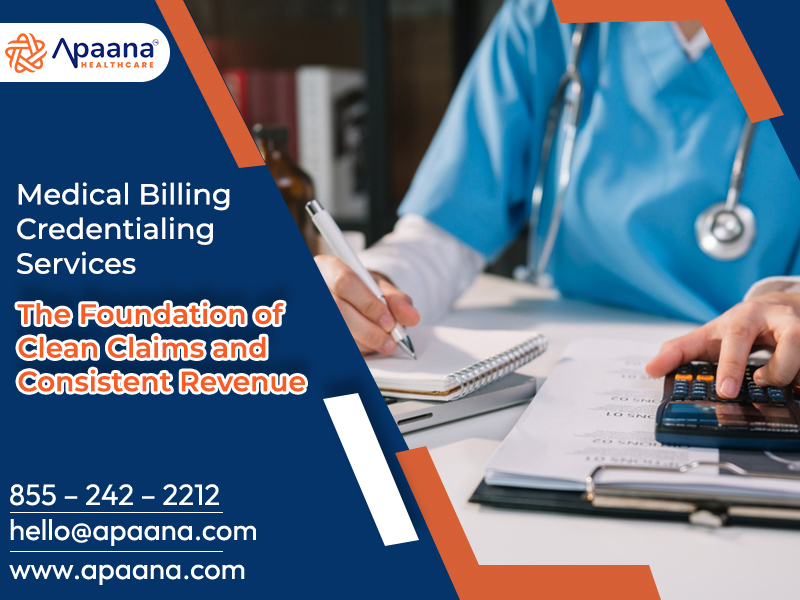Table of Contents
The healthcare industry is continuously evolving, and so is the demand for skilled professionals to maintain its integrity and efficiency. A critical role within this landscape is that of a medical credentialing specialist. If you’re interested in a career that combines attention to detail, problem-solving, and direct contributions to patient care, becoming a medical credentialing specialist could be an excellent fit. This guide will walk you through the essential steps, skills, and education needed to become a medical credentialing specialist.
What is a Medical Credentialing Specialist?
A medical credentialing specialist is responsible for verifying the qualifications of healthcare providers, including doctors, nurses, and other medical staff, to ensure they meet the required standards to practice. Credentialing specialists manage documentation, track licensing, review certifications, and confirm that each provider complies with federal, state, and organizational regulations. They play a crucial role in maintaining patient trust by ensuring that healthcare providers have the credentials necessary to provide quality care.
Step 1: Understanding the Role and Its Importance
Before jumping into education and training, it’s essential to understand why medical credentialing is so vital. Credentialing specialists act as gatekeepers for healthcare providers, protecting patients and healthcare facilities from risks associated with unqualified practitioners. By verifying licenses, certifications, and other credentials, these professionals ensure that every provider has the necessary qualifications and experience to meet the high standards of the healthcare industry.
A career as a medical credentialing specialist is perfect for individuals who are organized, detail-oriented, and passionate about upholding healthcare standards.
Step 2: Obtain the Necessary Education
To become a medical credentialing specialist, a high school diploma is typically the minimum educational requirement, though many employers prefer candidates with further education.
- High School Diploma: Start with a strong foundation in subjects like English, math, and science, which are essential in developing the analytical and communication skills needed for this role.
- Pursue Higher Education: While a college degree is not always required, obtaining an associate’s or bachelor’s degree in healthcare administration, business administration, or a related field can improve job prospects. These programs cover topics such as medical terminology, health information management, and regulatory compliance, all of which are useful in credentialing work.
- Relevant Courses: Some individuals choose to take specific courses or certifications in areas such as medical billing, coding, or healthcare management to further enhance their knowledge.
Step 3: Gain Relevant Work Experience
Experience in a healthcare-related field can significantly boost your chances of becoming a credentialing specialist. Many credentialing professionals start their careers in medical billing, health information management, or other administrative roles in healthcare. Here are a few ways to build relevant experience:
- Entry-Level Healthcare Roles: Consider roles in healthcare administration, such as a medical office assistant or administrative assistant, where you can become familiar with credentialing processes and healthcare regulations.
- Internships or Volunteering: Interning or volunteering in a healthcare facility, such as a hospital or clinic, allows you to observe credentialing processes and gain hands-on experience in document management, verification processes, and communication with providers.
- Network within the Industry: Networking can be incredibly helpful in this field. Engage with credentialing specialists or attend healthcare industry events to learn from experienced professionals and gain insights into the role.
Step 4: Develop Key Skills for Credentialing
As a medical credentialing specialist, certain skills are essential to excel. These skills include:
- Attention to Detail: Credentialing involves meticulous verification processes. Specialists must scrutinize every document, license, and certification to ensure accuracy.
- Communication Skills: Credentialing specialists frequently interact with healthcare providers, licensing boards, and colleagues. Effective verbal and written communication skills are vital for sharing information clearly and professionally.
- Problem-Solving Skills: Credentialing specialists often face challenges such as incomplete documentation or expired certifications. The ability to identify issues and resolve them promptly is essential.
- Time Management: Given the high volume of credentials that need processing, time management is a critical skill. Credentialing specialists must handle multiple tasks, often under strict deadlines, without compromising accuracy.
- Knowledge of Compliance and Regulations: Understanding healthcare regulations, licensing requirements, and compliance standards is essential for maintaining provider qualifications.
Step 5: Get Certified (Optional but Beneficial)
While certification isn’t always mandatory, becoming certified can enhance your credibility and make you a more competitive candidate. The most recognized certification for credentialing specialists is offered by the National Association Medical Staff Services (NAMSS).
- Certified Provider Credentialing Specialist (CPCS): This certification, offered by NAMSS, demonstrates that you have a comprehensive understanding of credentialing processes, healthcare compliance, and provider licensing.
- Certified Professional Medical Services Management (CPMSM): Another credential from NAMSS, the CPMSM certification, is more advanced and covers credentialing, compliance, and medical staff management.
Both CPCS and CPMSM certifications require passing an exam, and eligibility criteria include work experience in credentialing. Certification can increase your career opportunities and potential salary by showing employers that you have specialized knowledge and skills.
Step 6: Apply for Credentialing Specialist Positions
Once you have the necessary education, skills, and experience, start applying for credentialing specialist roles. Many healthcare providers, hospitals, insurance companies, and credentialing organizations hire specialists to manage their provider credentialing processes. When applying, emphasize your attention to detail, organizational skills, and any relevant experience in healthcare administration.
Step 7: Stay Updated on Industry Trends and Regulations
Credentialing regulations and standards can change over time. It’s crucial for credentialing specialists to stay informed about new developments in healthcare compliance and certification requirements.
- Attend Industry Conferences: Conferences hosted by organizations like NAMSS provide excellent networking opportunities and insights into the latest credentialing trends.
- Engage in Continuing Education: Many credentialing specialists take additional courses or attend workshops to stay current with industry standards.
- Join Professional Organizations: Organizations like NAMSS offer resources, courses, and certification programs that can enhance your skills and keep you informed about changes in healthcare regulations.
Career Path and Advancement Opportunities
The career of a credentialing specialist offers a variety of advancement opportunities. With experience, you may qualify for leadership roles such as Credentialing Manager or Director of Credentialing. These roles come with added responsibilities, including overseeing credentialing teams, managing compliance efforts, and working closely with executive management.
In addition, credentialing experience can also serve as a stepping stone into other areas of healthcare administration, like compliance management or quality assurance.
Why Choose a Career as a Medical Credentialing Specialist?
A career as a medical credentialing specialist is both rewarding and impactful. You’ll be responsible for ensuring that healthcare providers meet high standards, directly influencing patient safety and care quality. Additionally, credentialing offers job stability in a rapidly growing healthcare industry, with opportunities for advancement as you gain experience and certification.
Apaana Healthcare: Supporting Credentialing Specialists in Driving Healthcare Excellence
When it comes to credentialing, the right partner can make all the difference. At Apaana Healthcare, we understand the critical role credentialing specialists play in maintaining healthcare excellence. Apaana Healthcare drives operational excellence with global healthcare management solutions. Our specialized services include member enrollment, claims administration, medical billing and coding, and provider engagement, ensuring cost-effective solutions tailored to the unique needs of our clients.
With a commitment to quality, efficiency, and innovation, Apaana Healthcare is here to support credentialing specialists and healthcare providers alike in delivering the best possible patient care. Whether you’re just starting your career or advancing as a credentialing specialist, join us in setting new standards for healthcare excellence.
FAQs
What is the role of a Medical Credentialing Specialist?
A Medical Credentialing Specialist is responsible for verifying and maintaining the qualifications of healthcare providers, such as doctors and nurses. They ensure that providers meet the necessary licensing, certifications, and compliance standards required to practice in healthcare facilities.
What education is required to become a Medical Credentialing Specialist?
While a high school diploma is the minimum requirement, many employers prefer candidates with an associate’s or bachelor’s degree in healthcare administration, business administration, or related fields. Courses in medical terminology, healthcare management, and compliance are particularly beneficial.
Do I need certification to work as a Medical Credentialing Specialist?
Certification is not always mandatory but can greatly enhance your career prospects. Certifications like Certified Provider Credentialing Specialist (CPCS) or Certified Professional Medical Services Management (CPMSM) from the National Association Medical Staff Services (NAMSS) demonstrate expertise and credibility in the field.
What skills are essential for a Medical Credentialing Specialist?
Key skills include attention to detail, strong organizational abilities, excellent communication (both verbal and written), problem-solving capabilities, and knowledge of healthcare compliance and regulations. Time management is also critical for handling multiple credentialing processes efficiently.
How can I gain relevant experience to become a Credentialing Specialist?
You can start by working in healthcare administrative roles, such as a medical office assistant or health information technician. Interning or volunteering in hospitals or clinics can also provide hands-on experience with credentialing processes and document verification.





